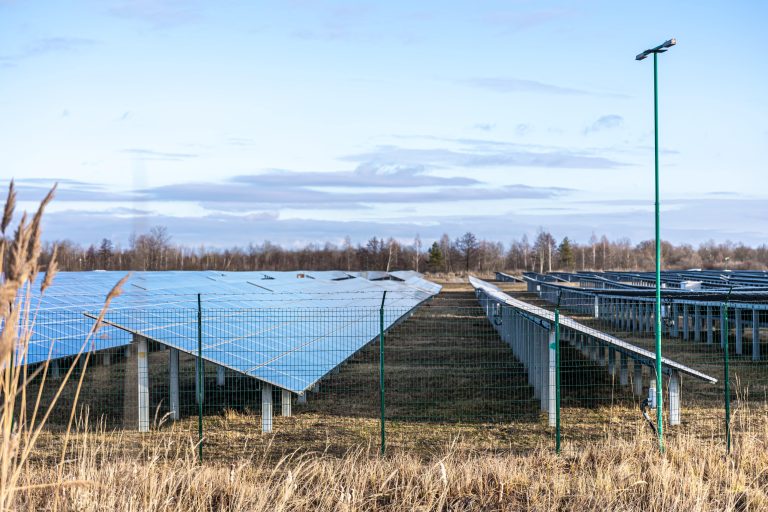Solar energy is a clean and renewable source of power that is becoming increasingly popular as a way to reduce dependence on fossil fuels and lower energy costs. One of the key decisions when setting up a solar power system is choosing between an on-grid and off-grid system.
On-grid solar systems
An on-grid solar system is connected to the utility grid, which means that it can both draw power from the grid and send excess power back to the grid. This is accomplished through a device called a net meter. The utility company will measure the amount of power you produce and the amount of power you use. If you produce more power than you use, the utility company will give you credits for the excess power. This is known as net metering. When the solar system is not producing power, you can draw power from the grid as usual.
On-grid systems are easy to install, require less maintenance and the cost of installation is lower as compared to off-grid systems. They also allow customers to participate in government incentives and subsidies that may be available.
Off-grid solar systems
An off-grid solar system is not connected to the utility grid, which means it has to store the power produced by the solar panels in batteries for use during times when the sun is not shining. This requires the use of a battery bank and a charge controller to manage the power stored in the batteries. The benefit of off-grid systems is that it provides energy independence and the ability to generate power in remote locations where the utility grid is not available. However, off-grid systems are more complex to install, require more maintenance, and the cost of installation is higher.
Comparison between on-grid and off-grid
When comparing on-grid and off-grid systems, it’s important to consider the cost, maintenance, and overall suitability for different types of properties or locations. On-grid systems are generally less expensive to install and easier to maintain, but they may not be the best choice for remote locations. Off-grid systems, on the other hand, are more expensive and require more maintenance, but they are the best choice for remote locations.
For example, if you live in a city and want to reduce your dependence on the utility grid, an on-grid system would be a good choice. However, if you live in a rural area where the utility grid is not available, an off-grid system would be a better choice.
Conclusion
The choice between on-grid and off-grid solar systems depends on your specific needs and goals. Both have their own advantages and disadvantages. On-grid systems are less expensive and easier to maintain, but they may not be the best choice for remote locations. Off-grid systems are more expensive and require more maintenance, but they are the best choice for remote locations. It’s important to consider the cost, maintenance, and overall suitability for different types of properties or locations before making a decision.






